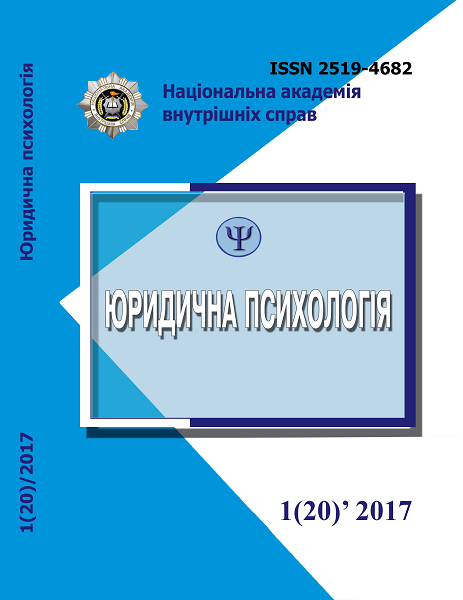Вияви домашнього насилля над дітьми
Abstract
Обґрунтовано обов’язок держави та суспільства захищати права дитини, зокрема право на життя та фізичну недоторканність; право не бути об’єктом знущань чи жорстокого, нелюдського або принизливого поводження; право на здоровий і безпечний розвиток тощо. Доведено, що жорстоке ставлення негативно позначається на всіх аспектах фізичного, психічного та соціального становлення дитини, ускладнює процеси її зростання й дорослішання, унеможливлюючи встановлення зрілих, безпечних відносин між дитиною та навколишнім світом, суспільством, окремими людьми.Downloads
Download data is not yet available.
Abstract views: 219 PDF Downloads: 557
Issue
Section
Psychological issues of work with delinquent persons
- Authors reserve the right to authorship of their own work and transfer to the magazine the right of the first publication of this work under the terms of the Creative Commons Attribution License, which allows other persons to freely distribute published work with mandatory reference to authors of the original work and the first publication of an article in this magazine.
- Authors have the right to enter into separate additional agreements on non-exclusive dissemination of the work in the form in which it was published in the journal (for example, to post an article in the institution's repository or to publish as part of a monograph), provided that the link to the first publication of the work in this journal is maintained.
- The journal's policy allows and encourages the posting of articles by authors on the Internet (for example, in electronic storehouses of institutions or on personal websites), both before the submission of this manuscript to the editorial office and during its editorial processing, as this contributes to the creation of a productive scientific discussion and positively affects the efficiency and dynamics of citing the published work.




